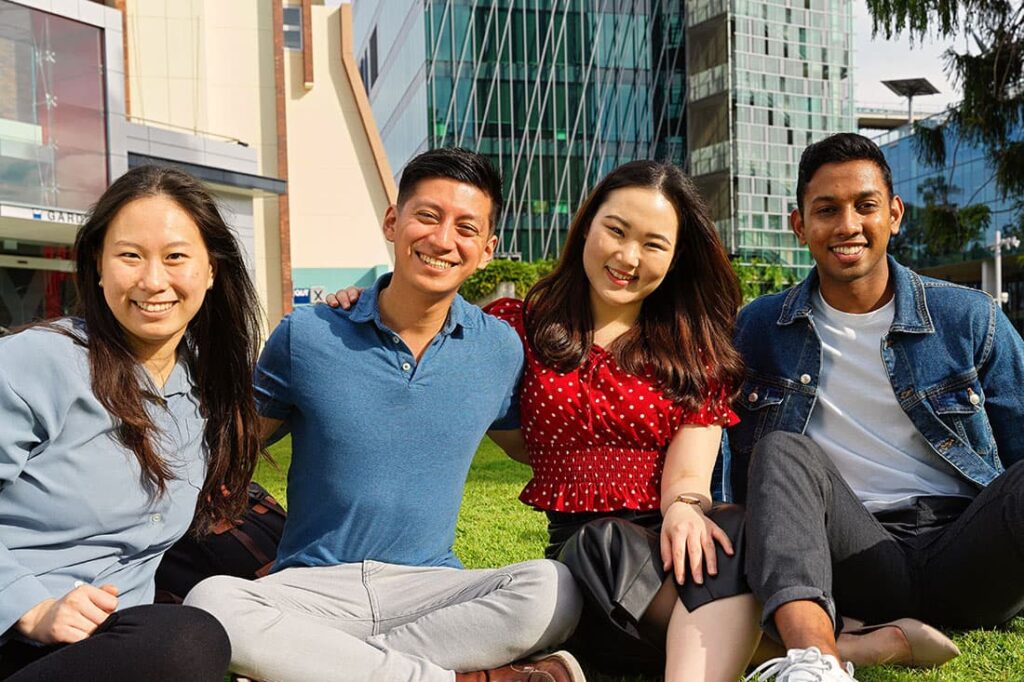All indications are there is a return of international students to Australia and as one agent recently put it – ‘there is a tsunami coming’. If this is the case we will need to carefully consider the shape and form of delivery. In reality things will not be the same as they were – in truth, things could actually be better.
Foreign students back to pre-pandemic numbers
According to Hare (March 13, 2022)[1] ‘International student numbers at universities have bounced back to above pre-pandemic levels, with the number of students commencing studies higher than in 2019’. This is good to hear – but the flow will still take some time to be evidenced at the MBA level across the country. What we do know is that the Australian MBA remains a sought after commodity both at public and private providers.
ICEF[2] also suggests ‘the market is beginning to recover: the number of visas granted to international students was up by 34% in December 2021 versus December 2020. There are concerns about a potentially weak return of Chinese students’.
The over reliance of Universities on the Chinese market led to some savage cuts and reductions – hopefully lessons have been learnt.
Return to face to face, on campus mode
Whether students actually want to come back on campus, though, is a complex question with an equally complex range of answers. My own institution student response (March 2022) is that 94% of MBA students wish to remain on line – hardly a call to campus. There is an argument that the mode of delivery preference is influenced by country of origin. Chinese students appear content with the off shore – on line option whereas Indian and Nepalese students prefer to be on shore – but not necessarily on campus
These preferences are largely driven by work opportunities. The current freedoms afforded to international students with regard to work hours may be driving the online option on shore. The concern is regarding the long term impact on course progression – a condition of maintaining a student VISA.
Hybrid may win the day
The hybrid mode (frequently referred to a hyper learning) – the option of either studying on campus or on line with the ability to switch back and forward – is likely the way to go, certainly in the short term (one to two years). The complexity of bringing staff and students back on campus throws up considerable challenges – not to mention expense – surrounding positive cases and associated close downs and deep cleaning regimes.
Providing both options (on line and F2F) simultaneously is a good way to go.
Classrooms become TV studios where a smaller audience is ‘live’ with a considerable number of online viewers. As the formal COVID-19 restrictions are slowly relaxed – this notion becomes a genuine opportunity. The most effective mechanism though requires staff to return to campus to be supported by high end technology.
Return to MBA programs
What we can take comfort in, though, is the quality of the Australian MBA product. We have collectively adapted well to the pressures and challenges of COVID-19. We have maintained high levels of commitment to teaching and learning. We have also learnt to adapt in this new environment – where online teaching (transmission) is supported with good technology and pedagogy.
The dividend associated with maintaining standards, ensuring student support and emphasising learner engagement – not an easy task over the last two years – will prove satisfying and rewarding. Our collective product remains in strong demand internationally and our reputation – throughout the COVID-19 lock down period – has also remained strong.
[1] https://www.afr.com/work-and-careers/education/foreign-students-back-to-pre-pandemic-numbers-20220310-p5a3ni
[2] https://monitor.icef.com/2022/03/australia-international-enrolments-down-17-in-2021-but-visa-applications-now-trending-up/










